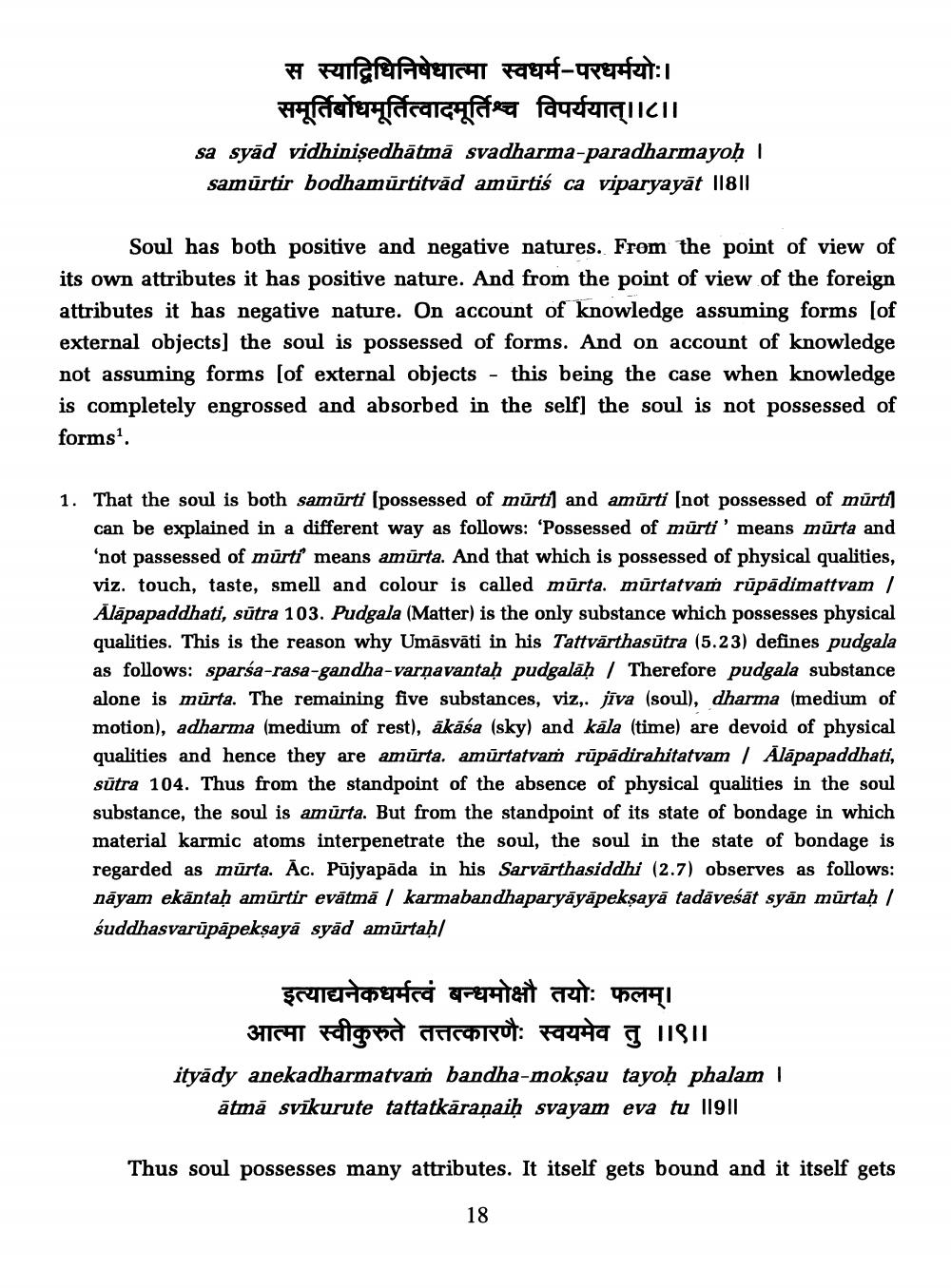________________
स स्याद्विधिनिषेधात्मा स्वधर्म-परधर्मयोः । समूर्तिर्बोधमूर्तित्वादमूर्तिश्च विपर्ययात् ||८||
sa syād vidhiniṣedhātmā svadharma-paradharmayoḥ | samurtir bodhamūrtitvād amurtis ca viparyayat |18||
Soul has both positive and negative natures. From the point of view of its own attributes it has positive nature. And from the point of view of the foreign attributes it has negative nature. On account of knowledge assuming forms [of external objects] the soul is possessed of forms. And on account of knowledge not assuming forms [of external objects this being the case when knowledge is completely engrossed and absorbed in the self] the soul is not possessed of forms1.
-
1. That the soul is both samurti [possessed of murti] and amurti [not possessed of mūrti】 can be explained in a different way as follows: 'Possessed of murti' means murta and 'not passessed of murti means amurta. And that which is possessed of physical qualities, viz. touch, taste, smell and colour is called mūrta. mūrtatvaṁ rūpādimattvam | Älāpapaddhati, sūtra 103. Pudgala (Matter) is the only substance which possesses physical qualities. This is the reason why Umasvati in his Tattvärthasūtra (5.23) defines pudgala as follows: sparśa-rasa-gandha-varṇavantaḥ pudgalāḥ / Therefore pudgala substance alone is murta. The remaining five substances, viz,. jīva (soul), dharma (medium of motion), adharma (medium of rest), ākāśa (sky) and kala (time) are devoid of physical qualities and hence they are amurta. amurtatvam rūpādirahitatvam | Alapapaddhati, sūtra 104. Thus from the standpoint of the absence of physical qualities in the soul substance, the soul is amurta. But from the standpoint of its state of bondage in which material karmic atoms interpenetrate the soul, the soul in the state of bondage is regarded as mūrta. Ac. Pujyapāda in his Sarvarthasiddhi (2.7) observes as follows: nāyam ekāntaḥ amūrtir evātmā | karmabandhaparyāyāpekṣayā tadāveśāt syān mūrtaḥ | śuddhasvarūpāpekṣayā syād amurtaḥ
इत्याद्यनेकधर्मत्वं बन्धमोक्षौ तयोः फलम्।
आत्मा स्वीकुरुते तत्तत्कारणैः स्वयमेव तु ॥९॥
ityādy anekadharmatvam bandha-mokṣau tayoḥ phalam | ātmā svikurute tattatkāraṇaiḥ svayam eva tu |19||
Thus soul possesses many attributes. It itself gets bound and it itself gets
18




